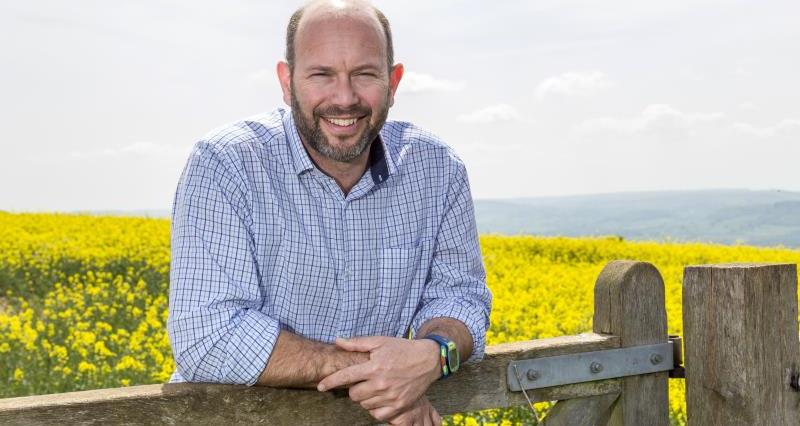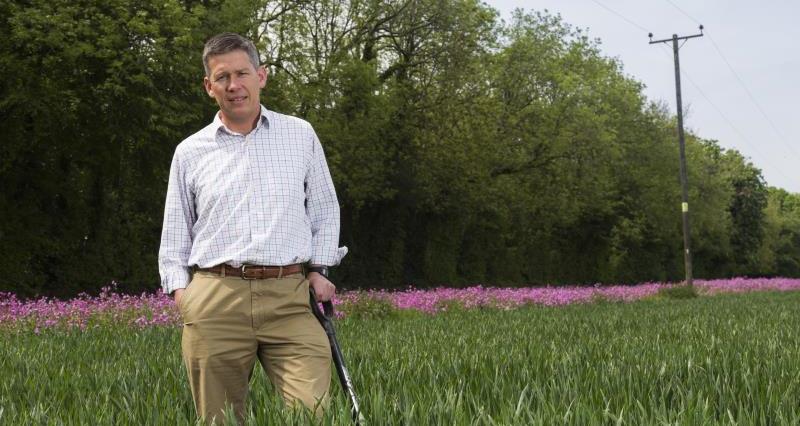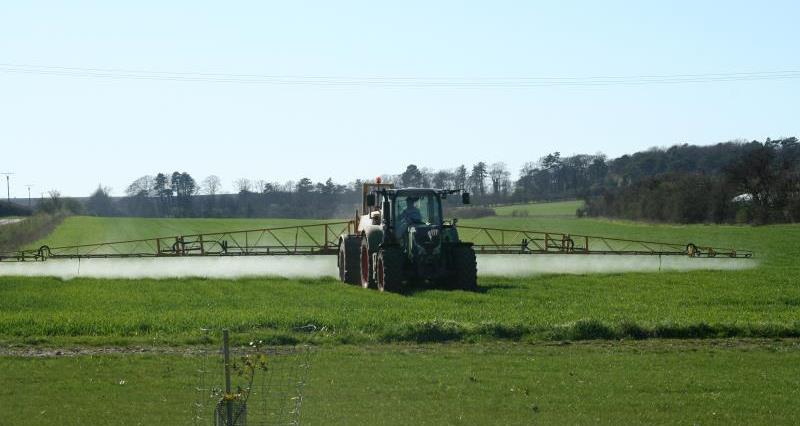Pesticides help protect plants from pests and diseases. They are used by farmers to control pests such as weeds or insects that damage and destroy food crops and to tackle diseases such as potato blight. The word pesticides covers a range of products including herbicides which control weeds, insecticides which control insect pests such as aphids, fungicides which tackle fungal diseases and rodenticides which control rats and mice. Depending on the crop, and the type of pest, these plant protection products can be applied as sprays, seed treatments or pellets.
As the world’s population continues to grow, by roughly 83 million every year, we need to find ways of producing more food from the same amount of land while impacting less on the environment.
There are 70,000 different pest species that damage food crops. The United Nations Food and Agriculture Organization estimates that 26% to 40% of crops are lost every year to weeds, pests and disease. Pesticide products help farmers to maximise the amount of food they can produce on their land by reducing the amount of their crop that is lost to disease and pests.
Without pesticide products, the amount of food lost could double. Less than 200 years ago, a single fungal disease destroyed Ireland’s potato crop which led to the death or emigration of millions of people. Some UK crops, such as peas, apples and carrots, would be extremely difficult to grow without pesticides. Much more land would also be needed to grow the same amount of food.
Pesticides also help to keep food prices down. A 2010 study concluded that without these products, the cost of food in the UK would increase by about 40%. Shoppers would also have less choice of affordable fresh fruit and vegetables.
Pesticides are among the most highly regulated chemical products in the world and they go through a stringent approval process before they are authorised for use. One of the criteria they have to meet is that they present no unacceptable risk to the environment.
In the UK, pesticides are applied in a highly controlled, highly regulated way and in the minimum quantities needed to ensure they are effective. The vast majority of what you see sprayed on crops is actually water.
Using some of these products can bring environmental benefits. They can help reduce soil erosion, soil compaction and greenhouse gas emissions by reducing the need for ploughing and the use of machinery. Reducing the need for ploughing helps earthworms thrive, and helps ensure bird nesting habitats are not disturbed.
For example, if farmers did not use the herbicide glyphosate, an extra 12 million tonnes of C02 would be added to the atmosphere each year – the equivalent of the emissions from 2.5 million new cars. This is because of the additional land that would need to be brought back into agricultural use to grow the food and the additional use of machinery.
Farmers work with agronomists – experts in soil management and crop production – to ensure pesticides are used appropriately and keep accurate records of the products they use. These records are audited by independent farm assurance scheme inspectors, such as Red Tractor, and are available to the Health and Safety Executive.
- Read more about how pesticides are regulated in the UK
- Read more about Red Tractor
- Read more about how farmers use pesticides responsibly through schemes such as the Voluntary Initiative (VI) and Catchment Sensitive Farming
Farmers only use pesticide products if they have to. For example, when they know that, in spite of all the other measures they have put in place, there is still a significant risk of major damage to the quality and quantity of a crop.
Many farmers use what is referred to as an integrated pest management plan, where they keep their use of pesticides to a minimum as part of a wider approach to controlling crop pests and diseases. They combine traditional farming practices, such as rotating which crops are planted in certain fields, alongside modern scientific techniques, such as planting seed varieties that have been developed to be naturally more resistant to some pests.
They can also plan to plant crops at times of the year when certain pests are less common, and to use biological pest control, where other natural organisms, such as predators, are used.
Yes. Pesticides break down over time after use. Small amounts, known as pesticide residues, may remain in or on food after it is harvested. Where pesticide residues occur, they are typically at very low levels.
In the UK, the government monitors both home-produced and imported food to check for any pesticide residues. This is carried out by the Health and Safety Executive, and the results are reviewed by the Expert Committee on Pesticide Residues in Food (PRiF). Recent PRiF reports showed that the majority of UK-produced food tested contained no residues at all.
According to the Food Standards Agency, the risk to health from eliminating fruit and vegetables from the diet would far outweigh the risks posed by possible exposure to pesticide residues.
- Read the 2016 PRiF report
- Find out more about the Food Standards Agency
- Find out more about the Expert Committee on Pesticide Residues in Food
Find out how these farmers are using pesticides...
Meet the farmer - Jake Freestone

At the Overbury Estate near Tewkesbury, farm manager Jake Freestone uses several approaches that reduce the need to use pesticides, including seasonal cropping and creating habitats for beneficial insects. For the past three years, all of the farm’s oil seed rape has been companion cropped, which means it is planted alongside another crop in the same field at the same time.
“The companion cropping has masked the oil seed rape from pest species,” Jake says. “And because of the increased competition, weeds have not been as successful as in previous years. Some of the companion crops used are legumes (plants with seed pods that split in half, such as beans, peas and lentils) which fix nitrogen in the soil, adding nutrients.”
Meet the farmer - James Cox

At Hazlecote Farm near Tetbury, James Cox farms malting barley, milling wheat and oilseed rape. By alternating between spring and winter cropping (winter oilseed rape, winter wheat and two spring barley crops) he has helped control weeds such as blackgrass.
“We have already cut down the use of insecticides and I’m always looking to reduce further,” he says. “We have previously has a ‘straw for muck’ partnership with our neighbours and this works really well by adding natural fertiliser to the soil.”
